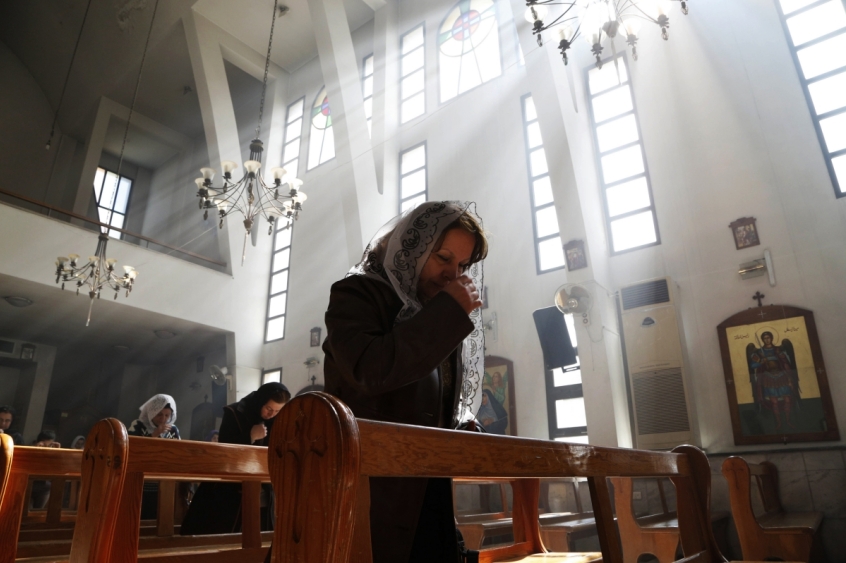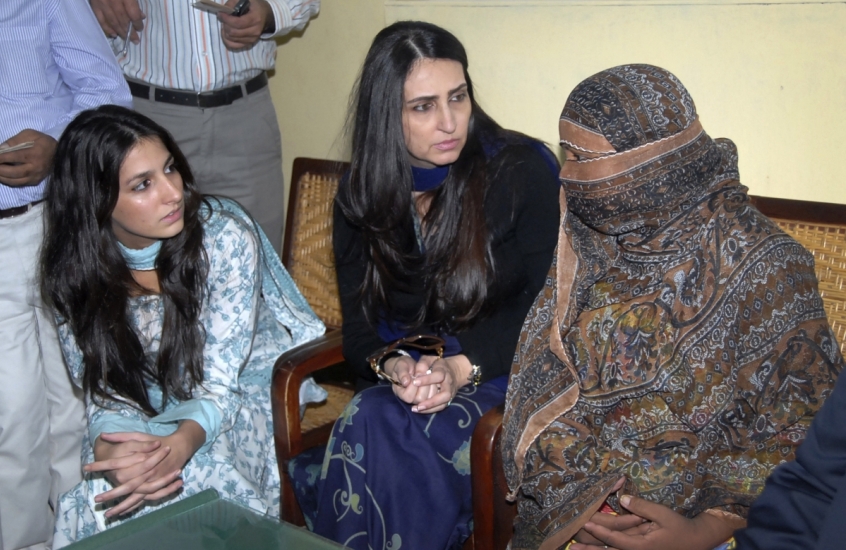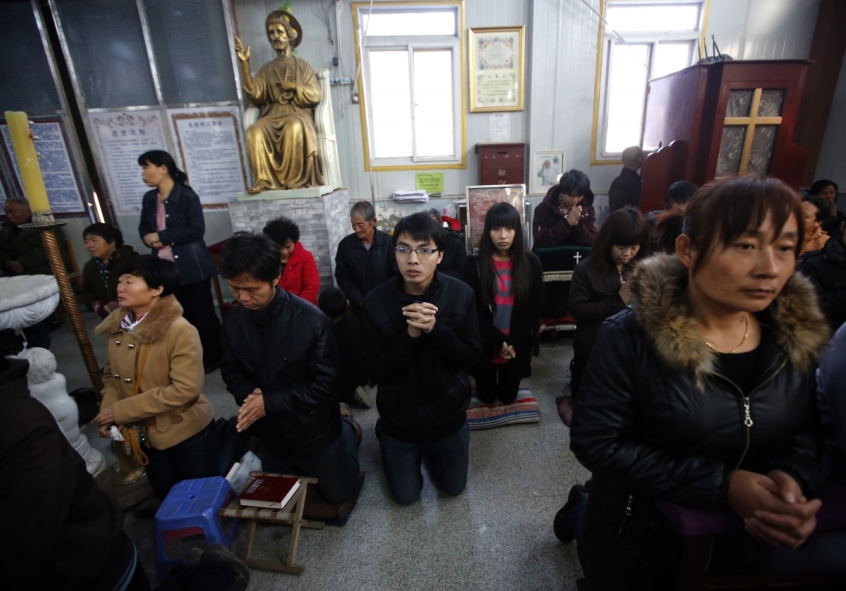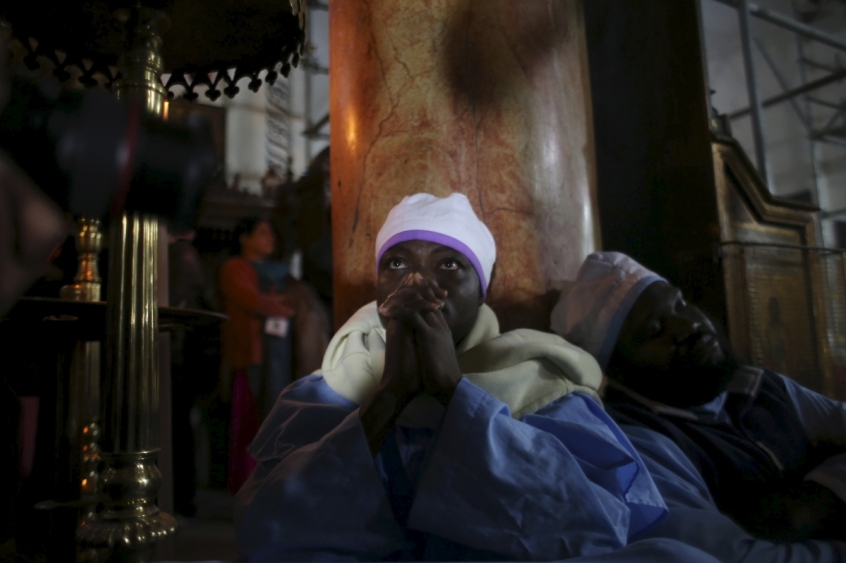Religious freedom has deteriorated rapidly across the globe, that was the conclusion of a US State Department report published in August.
The 2015 International Religious Freedom Report released on August 10 said that a quarter of countries around the world, which account for about 75 per cent of the global population, curtail religious liberty through "government policies or the hostile acts of individuals, organizations, or societal groups".
"Around the world, governments continued to tighten their regulatory grip on religious groups, and particularly on minority religious groups and religions which are viewed as not traditional to that specific country," the report said.
"By any measure, religious freedom abroad is under sustained and serious assault, with governments responsible for many of these abuses," Thomas Reese, chair of the US Commission on International Religious Freedom (USCIRF) told Christian Today.
"Governments' violations of religious freedom take many forms including: suppressing religious activity; detaining prisoners of conscience; and implementing anti-terrorism and anti-extremism laws (in, for example China and Russia), and blasphemy laws (in, for example, Pakistan and Egypt). Many of these governmental violations seek to control or marginalise those religious groups and their adherents who are deemed threats to the states' supremacy."
"The actions of non-state actors also present a major challenge to freedom of religion or belief," Reese added. "For example, in countries including Iraq, Syria, Nigeria, and the Central African Republic, non-state actors are among the primary perpetrators of egregious abuses of religious freedom and other human rights. Governments in these countries either are unable or unwilling to protect the rights of potential victims of persecution."
Here are some of the stories of persecution that have stood out over the past year.
Iraq and Syria

The battle to retake Mosul – ISIS' last stronghold in Iraq – is well under way, but Islamic State has over the past year continued to perpetuate serious abuses against religious minorities, including Christians, Yazidis and Shia Muslims.
At least 30 mass Yazidi graves have been discovered in liberated areas to the north of Sinjar Mountain in Iraq and harrowing stories continue to emerge from groups persecuted by ISIS. The systematic persecution of Christians, Yazidis and Shia Muslims was this year labelled a genocide by the US administration, European Parliament, UK Parliament and Council of Europe.
"Religious freedom conditions continue to deteriorate in Iraq, especially in areas under the control of ISIL [ISIS]," Reese said.
"While ISIL targets anyone who does not espouse its extremist Islamist ideology, minority religious and ethnic communities, including the Christian, Yazidi, Shi'a, Turkmen, and Shabak communities, especially are vulnerable. In Kirkuk, ISIL has used churches as bases, stormed cemeteries, and desecrated several graveyards; it also destroyed Assyrian monasteries. In late January 2016, it was reported that ISIL had destroyed the oldest Christian monastery in Iraq, the St. Elijah's Monastery in Erbil, which has been a place of worship for more than 1,400 years."
In Syria, civilians are suffering not only under ISIS, but also as the nearly six-year-old civil war rages on.
"Syria's religious communities largely are deprived of religious freedom due to the actions of President Bashar al-Assad's regime, elements of the armed opposition, and terrorist Jabhat alNusra and ISIL," Reese said.
"Since 2011, government forces targeted between 50 per cent and 63 per cent of Christian places of worship as well as members of the Christian community... Prominent Christian civil rights activists, humanitarian workers, and religious leaders have been among the detained and killed."
Isaac Six, advocacy director at International Christian Concern (ICC), told Christian Today that the Christian community in Iraq has been "decimated over the past thirteen years."
"Of the relatively small number who remain, hope is in very short supply," he added. "ICC has been working since August of 2014 with many of these communities to provide relief and assistance, and what we see now, even with ISIS slowly being pushed out of the country, is still a tremendous amount of fear that it's only a matter of time until they will have to leave the region all-together."
In Syria, he continued, the church "has endured incredible suffering over the past five years. Incredibly, there are still some Christians who remain, and our prayer is that they would endure and one day rebuild the church out of the ashes of the civil war."
Pakistan

One of the most infamous cases of Christian persecution in Pakistan is that of Asia Bibi, a Christian mother of five who was sentenced to death in 2010 after being accused and convicted under the country's notorious blasphemy laws.
In October, she was due to appear before Pakistan's Supreme Court in Islamabad for her final appeal after languishing for years on death row, but it was postponed on the day, leading campaigners to question whether the judge had bowed to Islamist pressure. Hardline Muslim groups in Pakistan want Bibi hanged for her alleged crime, and on the day of her appeal, the cleric of the Red Mosque in Lahore said he would issue a fatwa against the Prime Minister of the country if Asia Bibi was set free.
Campaigners say Pakistan's blasphemy laws are frequently misused and used against minority groups, especially Christians. The laws prescribe life imprisonment for the desecration of the Qur'an and the death sentence for "defiling" the Prophet Mohammad, and accusations of incidents have often prompted mob violence. According to the Centre for Research and Security Studies in Pakistan, more than 62 people have been killed in such incidents since 1990. More than 40 people are currently on death row for blasphemy, the majority of whom are members of religious minorities.
"The Pakistani government continues to perpetrate and tolerate systematic, ongoing, and egregious religious freedom violations," Reese said. "Religiously-discriminatory constitutional provisions and legislation, such as the country's blasphemy law and anti-Ahmadiyya laws, violate international standards of the freedom of religion or belief and result in prosecutions and imprisonments."
Reese also condemned "chronic sectarian and religiously-motivated" violence experienced by Shi'a and Ahmadiyya Muslims, Christians, and Hindus, and blamed the government's failure to protect religious minorities. This has created "a deep-rooted climate of impunity," he said.
North Korea
A horrifying report released in September revealed that Christians in North Korea face rape, torture, enslavement, and being killed for their faith.
CSW, a UK-based religious freedom charity, said in the report, Total Denial: Violations of Freedom of Religion or Belief in North Korea, that freedom of religion or belief "is largely non-existent" under dictator Kim Jong-Un's leadership.
"Religious beliefs are seen as a threat to the loyalty demanded by the Supreme Leader, so anyone holding these beliefs is severely persecuted," the report said. "Christians suffer significantly because of the anti-revolutionary and imperialist labels attached to them by the country's leadership."
Among the documented incidents against Christians are "being hung on a cross over a fire, crushed under a steamroller, herded off bridges and trampled underfoot".
Other crimes include "extra-judicial killing, extermination, enslavement/forced labour, forcible transfer of population, arbitrary imprisonment, torture, persecution, enforced disappearance, rape and sexual violence, and other inhumane acts".
Though the regime officially says there are just 13,000 Christians in North Korea, the true figure is believed to be much higher. Cornerstone Ministries International, which works with North Korean Christians in the country as well as in China, estimates that there are between 200-300,000 in total.
Believers are forced to practise their faith in secret, and if caught, get sent to North Korea's notorious hard labour camps. One escapee told CSW that while he was detained, he met a prisoner who was sent to the camp simply because he had spent a month in China studying the Bible.
Six told Christian Today it was "nearly impossible to imagine the horrors that are a daily reality for so many of faith in North Korea".
"Religious freedom conditions in North Korea remain dire, especially for Christians," Reese added. "Christians believed to have propagated religion, carried out religious activities, been in contact with religious persons, or are in possession of religious items typically are jailed, forced into hard labour, or executed."
China

The Chinese government this year continued its campaign to crackdown on Christianity and up to 1,700 churches have been demolished or had their crosses removed over the past three years.
However, new rules were drafted this year by the State Administration for Religious Affairs (SARA) that will further restrict religious freedom in the country. Due to be brought into effect in 2017, the new regulations will mean that no religious materials may be published without approval by SARA, no one may study theology without official permission, and no venues may be used for religious services unless a permit is granted.
China already has in place a number of draconian laws on religion that systematically repress the liberty of its citizens, and campaigners fear that the proposed new laws could see the climate for Christians and other minorities significantly worsen.
In November, it was reported that Christian children in Zhejiang – at the centre of the church demolition campaign – were being lured away from churches by a government scheme aimed at stopping them from taking part in Sunday services with other believers.
In October, more than 20 Christians in Henan province were detained and beaten, and another couple detained for hanging a cross in their home.
"It was generally believed that conditions were slowly improving in China over the past decade, but these incidents make it clear that the Communist Party is dedicated to crushing any perceived threat to its authority, regardless of the cost to freedom," Six said.
Nigeria

Open Doors has ranked Nigeria as one of the most dangerous places in the world to be a Christian. President of the charity's UK and Ireland division, Eddie Lyle, told Christian Today in September that the Church there "is facing its Gethsemane".
"For the most part it stands alone and misunderstood. It has endured years of destruction, great human loss, and its people scattered. It's time for the Church around the world to hear not only their cries, but their screams for help, and for the support of the family of God around the world," Lyle said.
Much of the violence perpetuated against Christians in Nigeria is by Boko Haram; an Islamist militant group whose name means 'Western education is sinful'. Since uprising in 2009, it has targeted more than 900 schools, deliberately killing at least 611 teachers and forcing another 1,900 to flee. In total, 20,000 people have been killed over the past seven years as a result of the insurgency.
In August, Boko Haram's new leader Abu Musab al-Barnawi vowed to eradicate Christianity in Nigeria. Militants will blow up "every church that we are able to reach... killing all of those who we find from the citizens of the cross," he said.
"In Nigeria, more Christians have been murdered because of their religious identity than in any other country we know of over the past year," Six said. "Boko Haram and Fulani militants are running rampant in the North and across the Middle Belt of the country. While the Nigerian military and government have taken some action against Boko Haram, the almost weekly slaughter of Christians by Fulani militants desperately needs to be addressed."













